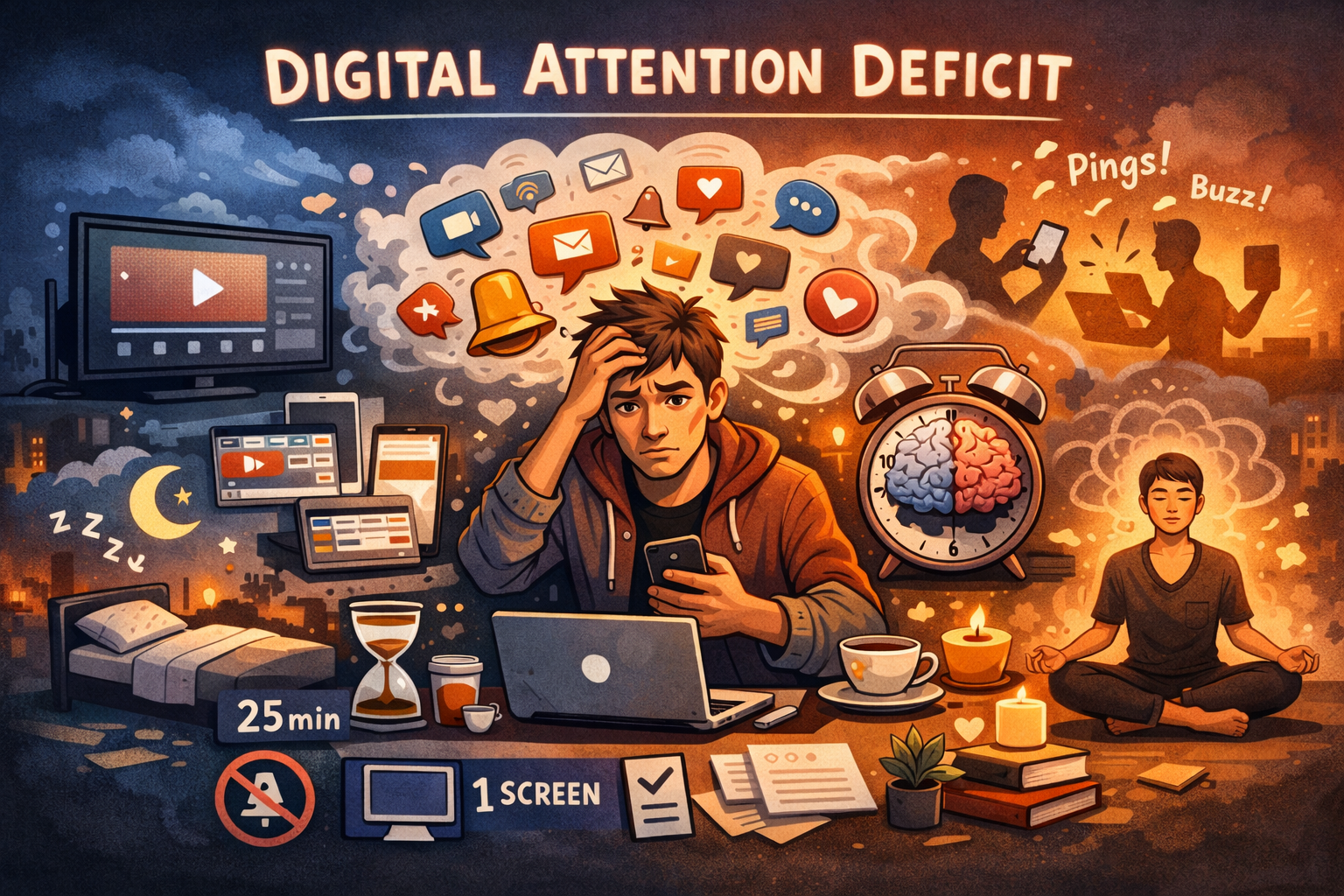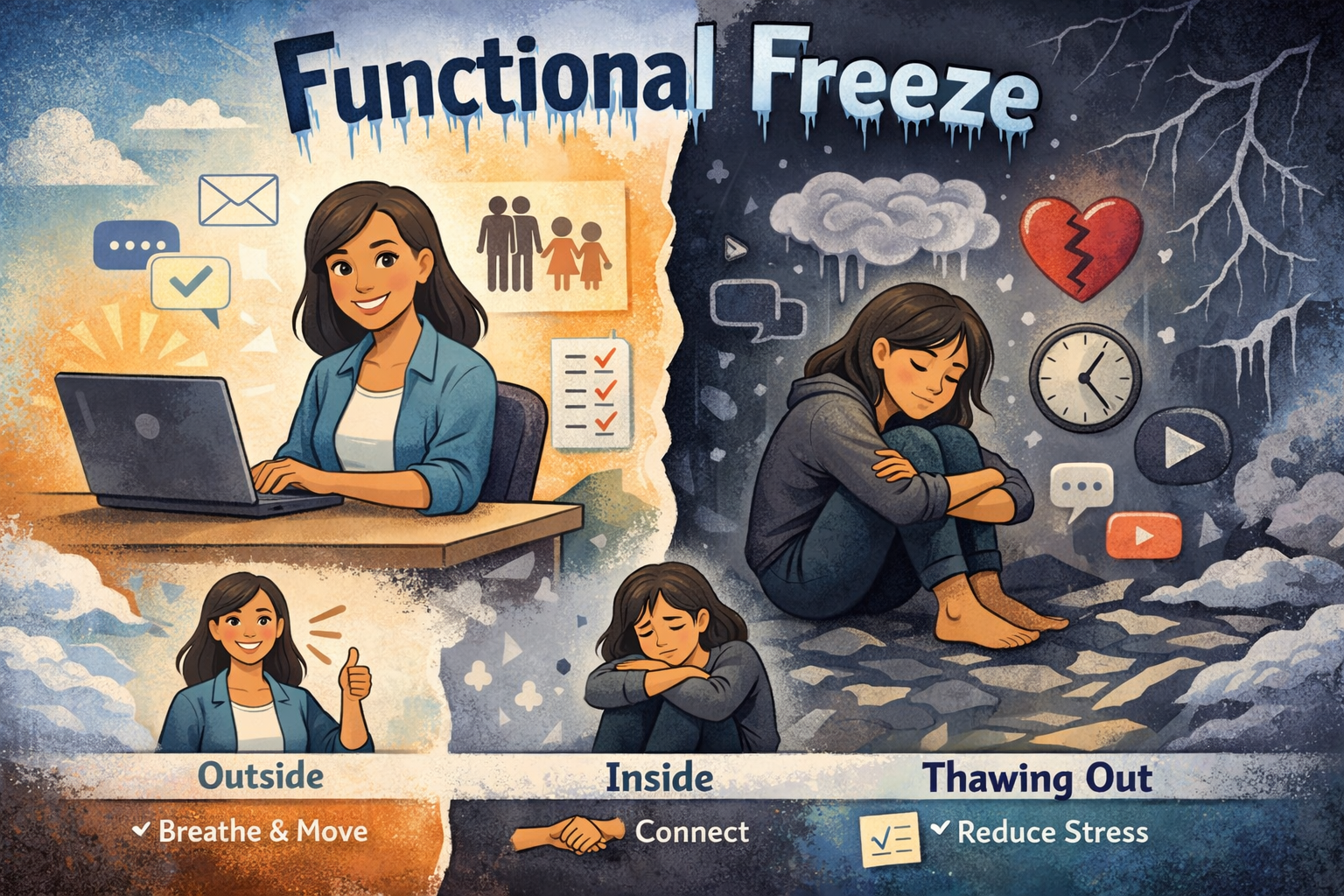Do you ever feel like everyone else’s life is more exciting than yours? Thanks to social media, this feeling is very common. We often see friends on amazing vacations, eating fancy meals, or attending fun events. This can make us feel like we are missing out. This feeling is called Fear of Missing Out, or FOMO. Instead of making us feel connected, social media can make us feel lonely and not good enough. We chase the experiences we see online, forgetting to enjoy our own lives. In this article, we will explore how to handle FOMO and live a more content and happier life.
Fake Profilicity
In the social media age, many people create and promote exaggerated or fake online personas. This is known as fake profilicity. It means showing a better and brighter self-image. These online profiles often show only the best parts of people’s lives. They portray an idealized version of reality. This perfect picture can make us feel like our lives are not as exciting. When we see others’ fake success or happiness, we tend to feel inadequate or left out. This fuels FOMO and makes us anxious that we are missing out on something better.
Understanding FOMO
FOMO is the worry that others are having more fun or doing better things than you. It’s that feeling when you see friends at a party or on a trip while you’re at home. FOMO can make you feel left out, anxious, and unhappy with your own life.
Why is FOMO so common?
1. Social Media Influence: Platforms like Instagram and Facebook show us the best parts of others’ lives. This makes it easy to compare ourselves and feel like we are not doing enough. Imagine social media like a highlight reel of everyone’s life. You see friends’ amazing vacations, delicious meals, and fun outings. This can make it feel like your own life is boring in comparison, even though people mostly share the good stuff online. That’s the reason, we all tend to project our ‘brighter’ side.
2. Successful means having a ‘very busy life’: We live in a world that values being busy and successful. There’s pressure to always be productive and keep up with trends. This makes it hard to be happy with our own choices and experiences. Our society often praises people who are constantly on the go. There’s pressure to be successful and chase the latest trends. This can make you feel like you’re falling behind if you’re not doing the same things, even if they wouldn’t actually make you happy.
How FOMO Affects Us
FOMO can cause stress, anxiety, and a feeling of inadequacy. We might push ourselves to attend events or buy things just to keep up with others, even if we don’t enjoy them. Over time, this can hurt our mental health and overall happiness.
Steps to Overcome FOMO
1. Practice Mindfulness
Stay in the Present Moment: Focus on what you’re doing right now. Enjoy the small things in your life. Mindfulness helps you appreciate your own experiences instead of worrying about others.
Breathe and Relax: When you feel FOMO creeping in, take deep breaths. Remind yourself that it’s okay not to be everywhere or do everything. Sometimes, less is more.
2. Limit Social Media Use
– Set Time Limits: Spending too much time on social media can fuel FOMO. Set specific times to check your accounts. Limiting screen time can help you feel less like you are missing out.
– Unfollow or Mute Triggers: If certain accounts make you feel bad, it is okay to unfollow or mute them. Follow content that makes you happy and inspired.
3. Focus on Your Own Journey
– Celebrate Your Achievements: Remember to celebrate your own successes, big or small. Each step you take is part of your unique journey. What happens is we generally ignore ‘positives’ we experience in our day-to-day life. On the other hand, we remember ‘negatives’ for a longer time.
– Set Personal Goals: Instead of comparing yourself to others, set your own goals. Focus on what you want to achieve and work towards it. This keeps you centered on your path.
4. Engage in Real-Life Activities
– Connect with Loved Ones: Spend quality time with family and friends. Real-life connections are more fulfilling than online interactions.
– Pursue Hobbies and Interests: Find activities you enjoy that do not involve screens. Whether it’s reading, painting, or hiking, these hobbies bring joy and relaxation.
5. Practice Gratitude
– Appreciate What You Have: Take time each day to reflect on what you are grateful for. It could be your health, family, or a simple moment of joy. Gratitude shifts your focus from what you lack to what you have.
– Keep a Gratitude Journal: Writing down what you are thankful for helps you stay positive and appreciate your life more. Ever feel like you take the good things in life for granted? A gratitude journal can help! It’s a simple notebook where you write down things you’re thankful for, big or small. It could be a delicious meal, a good friend’s call, or even just a sunny day. By taking a moment to appreciate these things, you start to focus on the positive aspects of your life, which can make you feel happier overall.
6. Embrace JOMO – Joy of Missing Out
– Find Joy in Missing Out: Feeling left out? It might be time to embrace JOMO (the joy of missing out)! Instead of feeling pressured to be everywhere and do everything, JOMO is about choosing what truly trigger happiness for you. Maybe it’s a late evening time with a good book while everyone else is at a crowded party. By prioritizing activities, you genuinely enjoy and saying no to things that drain your energy, you can create a more fulfilling and peaceful life.
Conclusion: Beating FOMO isn’t about getting rid of it completely. It’s about finding a balance and enjoying your own life. By practicing mindfulness, limiting social media, focusing on your journey, engaging in real-life activities, practicing gratitude, and embracing JOMO, you can reduce FOMO’s impact and live a more contented and fulfilling life.














